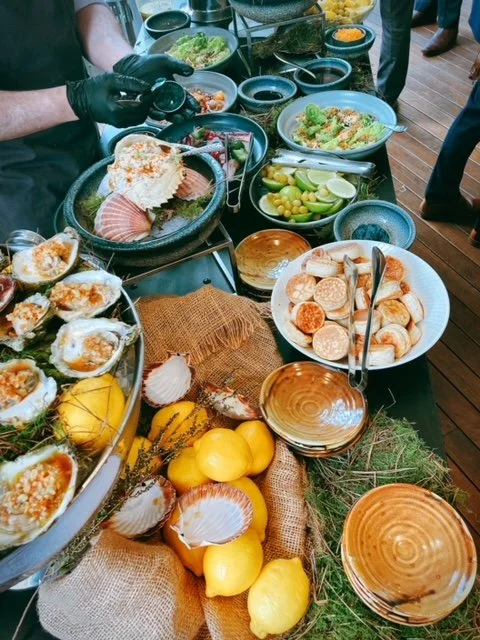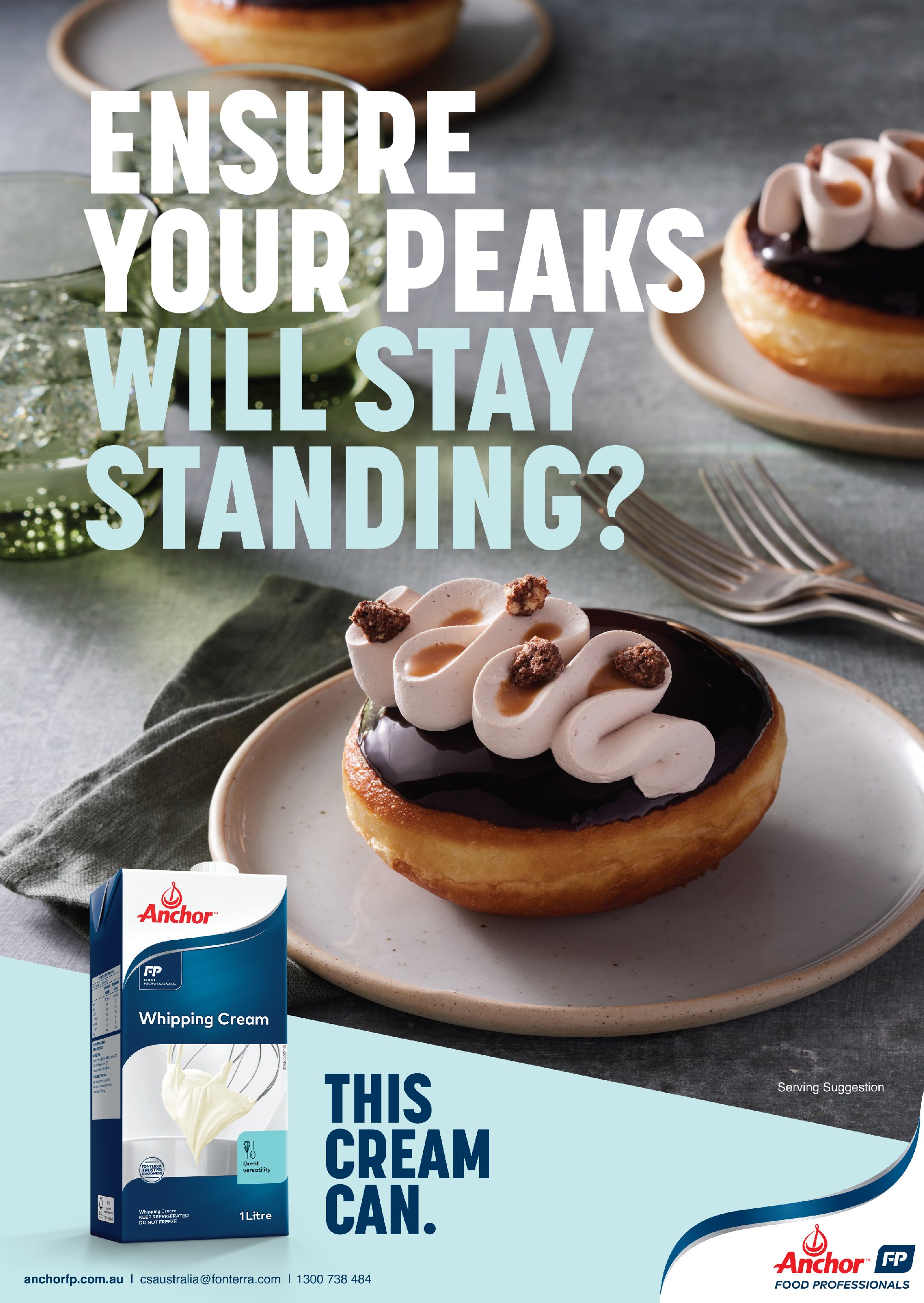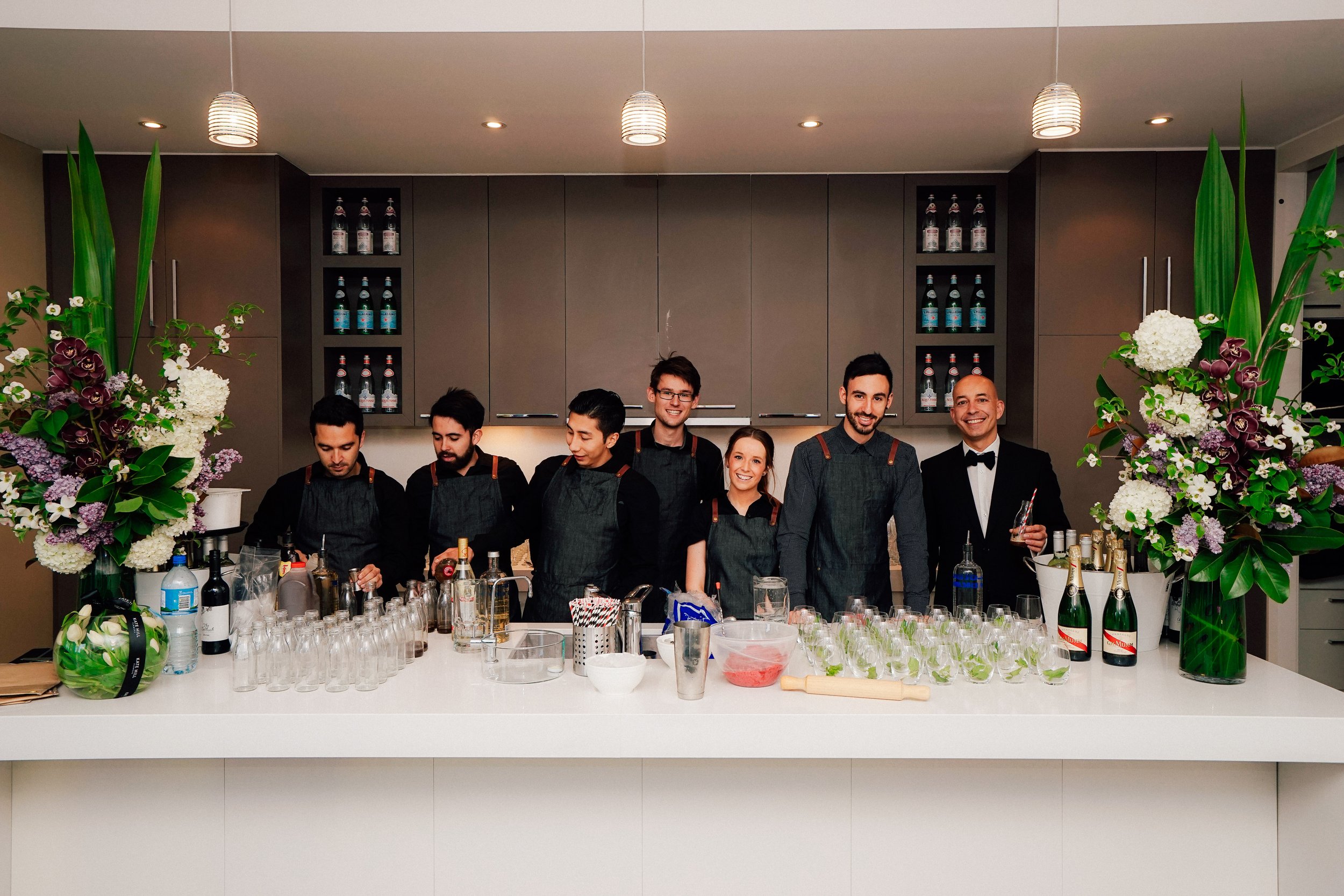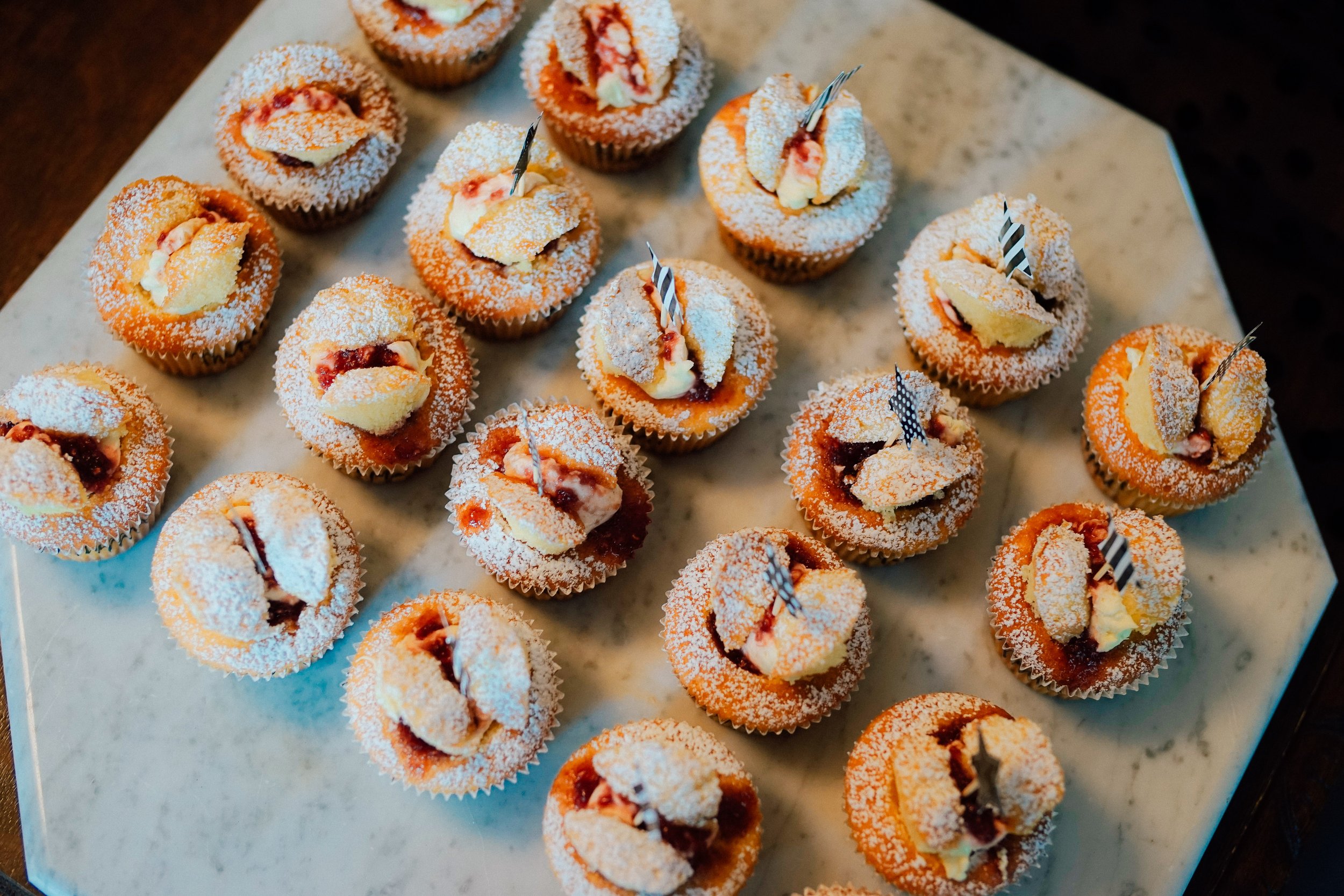Function catering post-Covid: rising to the challenges
With the festive season fast approaching, Foodservice Rep takes a look at the state of the function catering market post-Covid – including what’s trending in customer expectations and how businesses are tackling staff and supply chain shortages.
“I think pubs are in a great position right now – it's a time for indulgence, where people want to put their woes behind them.” So says Gary Johnson, National Executive Chef for ALH Group whose pubs do a big trade in function catering at this time of year. “The festive season’s already kicked off for us,” he adds, “in that all the footy finals have come through, if you’ll pardon the pun. From now until the end of January it’s just non-stop, we call it our ‘150 Days of Summer’ program – from off the back of Father’s Day, through to Halloween and Melbourne Cup, and after that it’s end of year work breakup parties, a few fundraisers, then Christmas and right through until New Year’s Day.
“There’s no point in planning when you’re in the eye of the cyclone – you’ve got to be well prepared beforehand”
“We've got every day planned, all hands on deck, but it’s important to prep your teams and that’s where i think some people get a little bit caught out. There’s no point in planning when you’re in the eye of the cyclone – you’ve got to be well prepared beforehand. So all our menus have been written, all our function kits are done, all our team members have had a break so everyone is muscled up and fit to go.”
Gary says the pub function market is pretty much back to normal post-Covid – “I watched the Grand Final in Melbourne and there were 100,000 people with no masks, sitting shoulder to shoulder, so I think we're in for a pretty busy time! All our Christmas menus were completed by August so we're rapidly selling now, in fact we were even selling Christmas bookings before the menus were ready! People were booking off the back of the good times they had with us last year.
“One of the positive things that Covid has given us is more focus on single portions and presentation”
“We've got carveries, buffets, sitdown dinners – we have to tick all the boxes because we cater to lot of different budgets, demographics and expectations. With 354 pubs around the country and growing – there might be another three or four by the time this article comes out – we try to offer something for everybody: some traditional, some with a twist, some contemporary presentation. All our pubs have zones, whether that be the sports bar, the lounge bar, an area you can cordon off and have a function in.
“One of the positive things that Covid has given us is more focus on single portions and presentation, which is great for us as a business, because we can portion control, we can count and assemble dishes accordingly. We might serve fish and chips in a little cone with a slice of lemon as a cocktail experience, or a slider on a buffet so with that people feel comfortable that they can take a portion of something which hasn’t been handled by others, put it on their plate and it’s ready to go.
“We find that with a lot of the office parties end of year celebrations, people are interested in mingling, networking and having fun so they prefer a standup, moving around event in their own private area, with the food coming out on a constant schedule. Sitdown lunches or dinners are much more popular on the actual festive days, like Christmas Eve, Christmas Day, Boxing Day, New Year’s Eve.
“We’ve also identified there’s a growing demand for degustation style menus now – probably on the back of a little premiumisation, which we’ve also found was coming through during Covid. Most people when they get the chance to get out and about want to spoil themselves right now, so lobster tails or a five or six course lunch that might go for two to three hours, rather than a steak on a plate and a plum pudding. We’ve given our chefs a template of five or six courses, with half a dozen different ideas for each, along with development menus to suit several different budgets.
People are happy to come out again to eat
Markus Werner, Corporate Executive Chef for Delaware North Australia, says not only is business back and strong, but consumers are also happy to spend a little extra – as long as they’re getting value for money. “They’re wanting the better meat, the better wines, so the average spend is rising. I do think everybody’s a little scared of things changing very quickly, so bookings are coming in very last-minute. This makes it harder for us to plan, I would say we are going with our gut. Obviously supply is getting more difficult as well – we have to make sure we’re stocked up on certain items, so a lot of the time we’re taking a punt, ordering and hoping all goes well.
“They’re wanting the better meat, the better wines, so the average spend is rising.”
“You do have to pass some of this increased cost on to your clients, and it has to be calculated in. Sometimes you’ll get a little burned, and obviously the margins are getting very slim. Supply is changing almost weekly so you have to adapt. I must say what I’ve always liked about Delaware North is that we’ve always had a very close relationship with our suppliers, and it’s important to be able to have a really open conversation. When the suppliers need support, we certainly jump in and try to move certain products, because they are also having to take risks. So I may forecast certain things and then have to say ‘I'm sorry, that just didn’t happen’ and then they're helping me as well, so you don't have to pay all that cost yourself. Which means a close relationship with suppliers and growers is more important than ever. They need to know how much potato I need, how much lettuce so they can start to put the plants in the ground now.
“You need to stay on top of things, plan in a little more detail than before. I would never have thought of forecasting how much lettuce I need, I’d just place the order and know I would get it – but now that’s not the case. Who would have expected a shortage on chips or lettuce or carrots? So that is a real legacy of Covid and it even extends past ingredients to packaging. If you’re short on packaging you’ll miss out, because no one has excess stock anymore. So you need to make sure you have plenty of everything. With certain products it’s a 12 week delivery right now – so you have to take a punt and say, this is what I think we’ll need.
“People are really looking to be entertained, to have the entire experience, not just the food”
“But business is strong and people are really happy to come out to eat again. They’ll pay $60 for a steak as long as it’s a great steak and you give the service and the respect they deserve. They want to have a good experience and they’re happy to pay $20 extra because they know the industry has done it tough – they’re looking for memorable moments again, and if you can give them an experience where they go home afterwards and say ‘That was really worthwhile’ then they’ll come back again and again.
Looking to the end of year, Markus echoes Gary’s comments, saying people are focused on indulgence. “They are adding an extra course, spending more money. We are bringing in cocktail stations with bartenders tossing bottles around, so there is a bit of theatre. We’ll serve up a smoked brisket or have a ribs station with a lot of smoke around it … people are really looking to be entertained, to have the entire experience, not just the food. And of course we’re also focusing on traditional sitdown with full service, including an upgraded wine and beverage list. They might take a shorter timeframe, so it’s not over five to six hours, but it’s indulgent and high end, without being dragged out too long.”
Event market has contracted
Catering and events company Calibre Feasts operates Edwin’s at AAMI Park Stadium, which regularly plays host to corporate events as well as catering for weddings, functions and elite sporting teams. Director Nick Kalogeropoulos says that business is now going “full steam ahead” with lead times back to normal. “The event market has contracted a little as a result of Covid, in that those smaller get-togethers are doing been done via Zoom instead of in person. I think that will stay until consumer and business confidence comes back more. And because people are working from home more, a lot of office buildings have downsized and that obviously affects office functions. But we have started to get some inquiries for Christmas parties and I think there’s a real interest for teams to get together again because everyone’s been so starved for social interaction.
“Because we don’t have the workforce, a lot more food is being purchased readymade”
“Last Christmas we went gangbusters – every venue in Melbourne just exploded and everyone had to sale up, with all these people wanting to spend money but venues being unable to get in enough product or staff. I will think it will be similar this year, but probably not as manic – because last year we didn’t open up until first week of November and had density caps in place, and that’s no longer the case. People have a longer run up where they can do a party early or mid November rather than all waiting until December like last year, so I think events will be staggered over three months rather than pushed into one. So it’s a calmer buildup, but it will still be incredibly busy.”
Nick says event caterers are becoming more tactical in their approach: “Because we don’t have the workforce, a lot more food is being purchased readymade. All the smaller to middle-sized event centres will probably be buying a lot more product in – I know firsthand through our food distribution company that everybody is buying some part of their menu in. If you’re offering six canapes, there's components that will be bought in to ease the pressure on the kitchen. I’f you’re doing a vegan falafel canape, you might buy the falafel in and pimp it up a little, finish it off because there's just not enough labour to make everything from scratch.
“Even pre-Covid, event catering was driven by budget and time and this is certainly the case now. If it’s a corporate event at Christmas, people tend to be so time poor and there’s so many competing events that if for example your law firm invites all your clients, you'll tend to go for a stand up cocktail party so people can drop in and out. If it’s a dinner for staff it’s more inclined to be a sitdown because that’s their destination for the evening. But that said, if you have a big staff it can be unaffordable for a sitdown. Food stations are up and down, they’re more of an eclectic choice on the part of the organiser – I find if you have 300 to 400 in a room, people might be sitting down the back having a glass of wine and they’ll miss out on service. There’s also still the fear factor that some people have from Covid of others breathing on or touching food. But thinking back to a year ago when we had to plate every single canape, at least now we can go back to normal platters and feed everybody as we did in the past.
“I think the market is still fiercely competitive. If you apply the 80/20 principle, where 20 per cent of the restaurants in the CBD are getting 80 per cent of the business, then it’s always going to come down to survival of the fittest and the ones with the greatest brand recognition. Presentation, branding, what you’re doing on social media plays into it as well. We're not just selling food and drink but an experience, and customers expect you to be firing on all four cylinders – food, beverage, service and ambience.”














